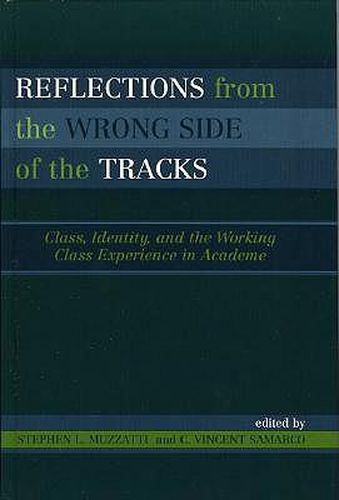Readings Newsletter
Become a Readings Member to make your shopping experience even easier.
Sign in or sign up for free!
You’re not far away from qualifying for FREE standard shipping within Australia
You’ve qualified for FREE standard shipping within Australia
The cart is loading…






In this edited collection of narrative-based, critically situated essays, each contributor explores how class has affected his/her personal and academic lives. The collection is divided into three sections: i) narratives that critique the meritocracy; ii) narratives that trace the effects of middle class cultural capital on relatively new academics from the working class, and; iii) narratives that explore the effects of class on longtime academics from the working class. The effect of the collection will be cumulative. By choosing contributors from multiple disciplines, including both established and emerging voices, the text articulates the pervasiveness of class bias in this country and fleshes out the mechanisms that mask how class and power work. Such a text is critically important, both inside and outside academia, because it demystifies the academic world for those who have been restricted by it, but also engages critically trained academics and academics-in-waiting to understand and respond to the experiences of working class students. Finally, the authors hope this text will encourage other working class students to consider an academic career as an option.
$9.00 standard shipping within Australia
FREE standard shipping within Australia for orders over $100.00
Express & International shipping calculated at checkout
In this edited collection of narrative-based, critically situated essays, each contributor explores how class has affected his/her personal and academic lives. The collection is divided into three sections: i) narratives that critique the meritocracy; ii) narratives that trace the effects of middle class cultural capital on relatively new academics from the working class, and; iii) narratives that explore the effects of class on longtime academics from the working class. The effect of the collection will be cumulative. By choosing contributors from multiple disciplines, including both established and emerging voices, the text articulates the pervasiveness of class bias in this country and fleshes out the mechanisms that mask how class and power work. Such a text is critically important, both inside and outside academia, because it demystifies the academic world for those who have been restricted by it, but also engages critically trained academics and academics-in-waiting to understand and respond to the experiences of working class students. Finally, the authors hope this text will encourage other working class students to consider an academic career as an option.